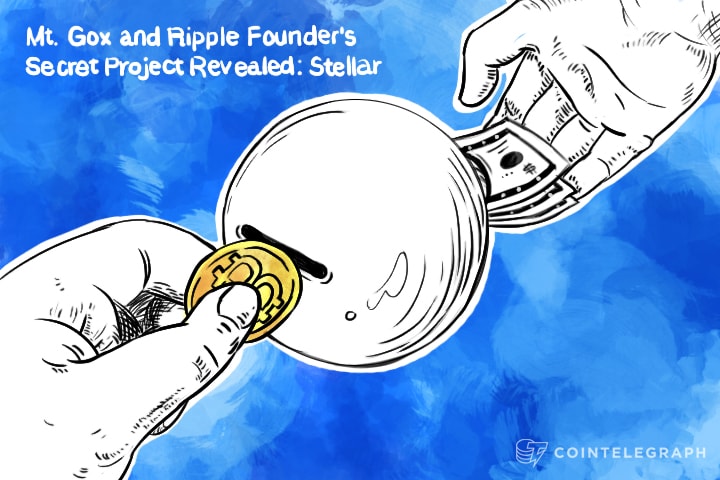Update: A previous version of this article erroneously stated that Stripe was the primary funder of Ripple, it was meant that Stipe was the primary funder of Stellar. We regret the error.
If you have a good memory, you might remember that Jed McCaleb, the original Mt. Gox owner (he sold it to its last CEO, the disgraced, Mark Karpeles) teased a project he was working on a while back. It was shrouded in mystery, but he did say he was looking for Alpha testers.
Yesterday, all was revealed. Stellar is entering its first public phase. Stellar is a new digital currency that is designed to facilitate trading of digital currencies, fiat currencies and any other good. This is accomplished by having entities act as gateways. Lets say you want to buy some Gold on the Stellar market. You simply find a gold seller you trust, buy some of their assets listed on the Stellar marketplace, which can then be traded with everyone else on the marketplace or turned in for physical gold at one of the merchant's physical stores.
If it sounds like you have heard all this before, it might be because it is very similar to the system put out there by Ripple. McCaleb left Ripple and there were some reports that a disagreement with Ripple Labs management was to blame, although McCaleb has not shared many specifics beyond that.
McCaleb said he was going to work on man-made surf parks. We aren't sure if he was serious about that, but he soon started dropping hints about his project, now known as Stellar. It appears the draw of the cryptocurrency industry is too strong for McCaleb to resist.
The technology behind Ripple and Stellar are very similar. It wouldn't be completely inaccurate to call Stellar a fork off of Ripple. However, Stellar intends to address some of the criticisms lobbied at Ripple, starting with its distribution method.
McCaleb recently revealed that he and Chris Arthur owned 20 billion Ripples between the two of them. The danger of this was demonstrated when the mere mention of McCaleb selling off his 9 billion Ripple holdings caused the currency to drop by more than 50 %.

According to Stellar, 95 % of the coins will be given away to its first users, charities, and Bitcoin and Ripple holders (whom McCaleb says Stellar owns a lot to). The remaining 5 % will be held by Stellar in order to pay development costs in a non profit fashion. All spending by the company, including employee salaries will be public.
The other potential issue with Ripple's asset exchange, that the user has to put trust into gateways, still exists on Stellar. To address this, Stellar plans to slowly add a few trusted gateways and then expand from there. Stripe, which processes epayments and is the primary funder of Ripple Stellar, would be a good candidate for a gateway that could exchange dollars, euros, or pesos. Stellar's website lays out their plan:
We’re working with a few currency exchanges to help them become the first Stellar gateways; once they’re done, you’ll be able to transact in the currencies they provide. In the long term, there will be gateways to cover every payment method that people choose to support.
Besides Jed McCaleb, Stellar Foundation Board includes Keith Rabois, formerly of Square and Paypal, The CEO of Stripe, Patrick Collison and is led by Venture Capitalist Joyce Kim.
We have been using Stellar, our limited use showed a good design and quick transactions. Notably, nicknames can be used in leiu of addresses, simplifying the sending process greatly. The giveaway has since been adjusted by Stellar to match market prices. They had to close registrations temporarily, but they have opened back up, new members get roughly $ 10 USD in free stellars.
Did you enjoy this article? You may also be interested in reading these ones:
Do you want to read Cointelegraph from your mobile device? Then go to our


